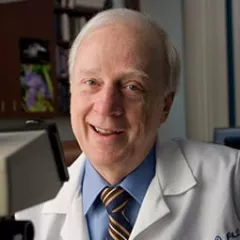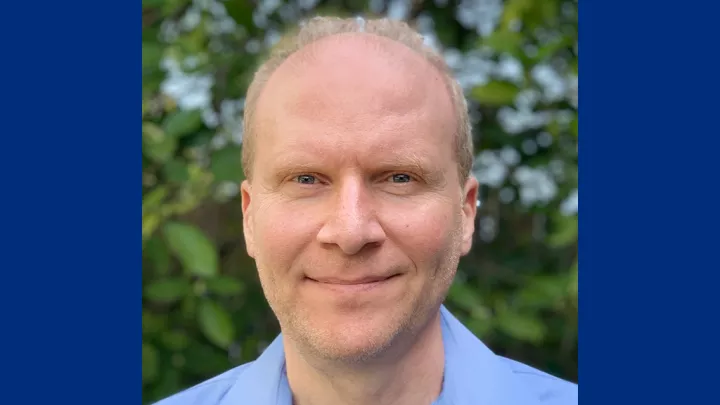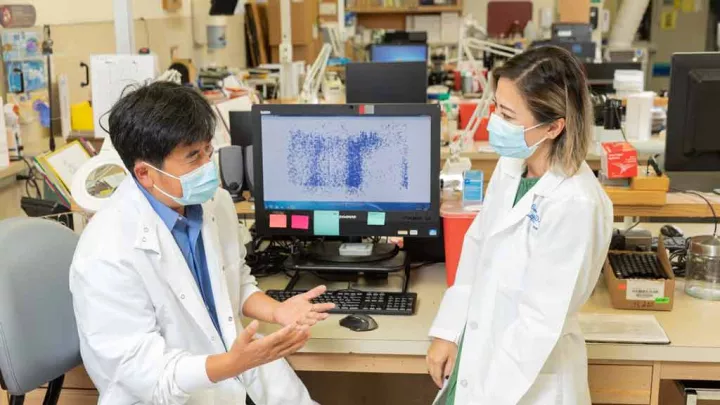
Timothy Triche, MD, PhD
Dr. Timothy Triche is the Interim Chief of Genomic Medicine, and the Director for the Children’s Hospital Los Angeles (CHLA) Center for Personalized Medicine. He previously served as Chief of the CHLA Department of Pathology and Laboratory Medicine for over 20 years. Prior to joining CHLA, Dr. Triche was Head of Molecular Diagnostics in the Laboratory of Pathology at the National Cancer Institute. At CHLA, he directs a cancer genomics, biology, and nanotechnology laboratory research program. He has developed numerous biomarker profiles for cancer diagnosis, prognosis and treatment as part of the NCI’s Director’s Challenge, SPECS and TARGET initiatives. His focus is on functional characterization of non-coding RNAs in cancer and development.
He received his undergraduate degree in physics and biology from Cornell University in 1966, where he was a Cornell National Scholar, and MD and PhD degrees from Tulane University in 1971, where he was a Medical Scholar Training Program grant recipient. He received his specialty training in pathology and surgical pathology at Barnes Hospital-Washington University School of Medicine, where he also did a post-doctoral fellowship in cancer-associated lectin biochemistry. He subsequently did a further post-doctoral fellowship at the NCI, which eventuated in a tenured faculty position as Section Chief in the Laboratory of Pathology at the NCI immediately thereafter.
Pediatric sarcomas
Education
Tulane University School of Medicine
Tulane University School of Medicine (PhD)
Barnes Hospital, Washington University Medical School
National Institutes of Health
Accomplishments
American Board of Pathology: Anatomic Pathology
Children’s Oncology Group
Association for Molecular Pathology
American Association for Cancer Research
College of American Pathologists
American Society of Human Genetics (ASHG)
George Hauser Award in Pathology (1971)
U.S. Public Health Service Outstanding Service Award (1988)
Best Doctors in America, Pathology (2004-09)
Publications
Moore JB 4th, Loeb DM, Hong KU, Sorensen PH, Triche TJ, Lee DW, Barbato MI, Arceci RJ. Epigenetic reprogramming and re-differentiation of a Ewing sarcoma cell line. Front Cell Dev Biol. 2015 Mar 9;3:15. doi: 10.3389/fcell. 2015.00015. eCollection 2015. PubMed PMID: 25806369; PubMed Central PMCID: PMC4353378.
Kang MH, Wang J, Makena MR, Lee JS, Paz N, Hall CP, Song MM, Calderon RI, Cruz RE, Hindle A, Ko W, Fitzgerald JB, Drummond DC, Triche TJ, Reynolds CP. Activity of MM-398, nanoliposomal irinotecan (nal-IRI), in Ewing’s family tumor xenografts is associated with high exposure of tumor to drug and high SLFN11 expression. Clin Cancer Res. 2015 Mar 1;21(5):1139-50. doi: 10.1158/1078-0432.CCR-14-1882. PubMed PMID: 25733708.
Brohl AS, Solomon DA, Chang W, Wang J, Song Y, Sindiri S, Patidar R, Hurd L, Chen L, Shern JF, Liao H, Wen X, Gerard J, Kim JS, Lopez Guerrero JA, Machado I, Wai DH, Picci P, Triche T, Horvai AE, Miettinen M, Wei JS, Catchpool D, Llombart-Bosch A, Waldman T, Khan J. The genomic landscape of the Ewing Sarcoma family of tumors reveals recurrent STAG2 mutation. PLoS Genet. 2014 July 10;10(7):e1004475. doi: 10.1371/journal.pgen.1004475. eCollection 2014 Jul. Erratum in: PLoS Genet. 2014 Aug;10(8):e1004629. PubMed PMID: 25010205; PubMed Central PMCID: PMC4091782.
Presner JR, Iyer MK, Sahu A, Asangani IA, Cao Q, Patel L, Vergara IA, Davicioni E, Erho N, Ghadessi M, Jenkins RB, Triche TJ, Malik R, Bedenis R, McGregor N, Ma T, Chen W, Han S, Jing X, Cao X, Wang X, Chandler B, Yan W, Siddiqui J, Kunju LP, Dhanasekaran SM, Pienta KJ, Fend FY, Chinnaiyan AM. The long noncoding RNA SChLAP1 promotes aggressive prostate cancer and antagonizes the SWI/SNF complex. Nat Genet. 2013 Nov;45(11):1392-8. doi: 10.1038/ng.2771. Epub 2013 Sep 29. PubMed PMID: 24076601; PubMed Central PMCID: PMC3812362.
St Laurent G, Shtokalo D, Dong B, Tackett MR, Fan X, Lazorthes S, Nicolas E, Sang N, Triche TJ, McCaffrey TA, Xiao W, Kapranov P. VlincRNAs controlled by retroviral elements are a hallmark of pluripotency and cancer. Genome Biol. 2013 Jul 22;14(7):R73. doi: 10.1186/gb-2013-14-7-r73. PubMed PMID: 23876380; PubMed Central PMCID: PMC4053963.
Research
The overarching goal of our research is to improve the outcome for patients with cancer. To do so, we seek to better understand the underlying genetic mechanisms that drive the development of cancer, or oncogenesis. In addition, we hope to utilize this newfound knowledge to identify therapeutic targets and deliver targeted therapies to tumor cells using nanoparticle delivery therapy.
Visit the Triche Laboratory.
4650 Sunset Blvd.
Smith Research Tower
Los Angeles, CA 90027
United States

